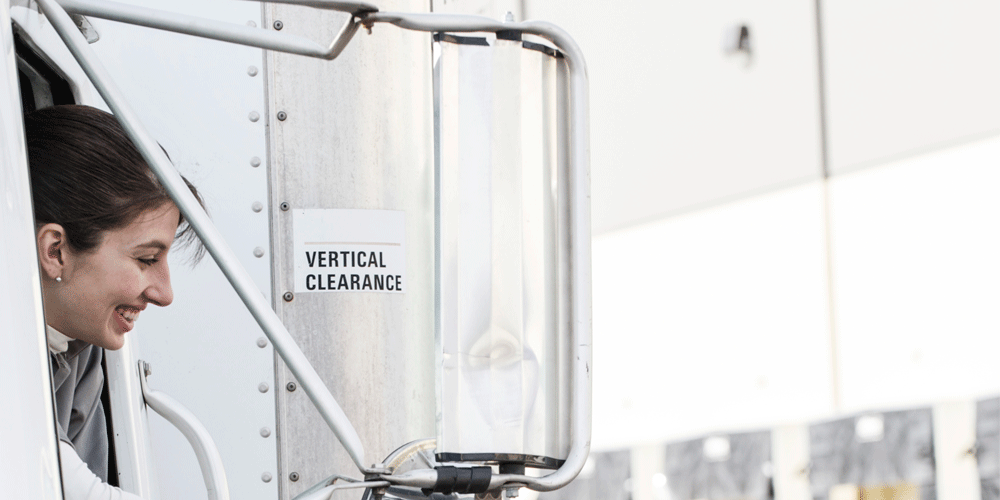Rich is an owner-operator flatbed driver at ATS. He's been driving for four decades.
Are you working with a new driver manager?
Those first few weeks are crucial.
Driver manager and driver relationships are powerful. One bad relationship with a driver manager can sour you on trucking entirely. At the very least, a bad relationship with your driver manager can make you leave the current trucking company you’re with.
Maybe you’ve just switched companies and you’re adjusting to a new driver manager and a new trucking company. Perhaps you just got a new driver manager because yours left the company. Maybe you even requested to switch driver managers.
Regardless of why you’ve started working with a new driver manager, it’s important you focus on building a strong relationship to ensure you’re both successful. Both sides of the team need to put in the work. In the end, your relationship with your driver manager has a huge impact on your professional life.
I’ve been driving for four decades and have been driving with Anderson Trucking Service (ATS) as an owner-operator flatbed driver for years. My relationship with my driver manager and the company as a whole has always been very important to me and crucial to my success.
Check out these four questions to ask your new driver manager and remember — just like any relationship, in order for it to work well, there needs to be give and take on both sides.
Sitting Down With Your Driver Manager
When you get a new driver manager — no matter the reason — you should always take the time to sit down with them for a conversation if possible. If not, schedule some time out of your busy work day to talk on the phone or do a video chat.
This is important for a few reasons. First off, it puts a face and voice to a name. You’re not just another driver on their fleet and they’re not just a random person who assigns you loads. Take some time to chat and get to know the basics about each other. You may be alone in the truck day after day, but your driver manager is the person you’ll be in contact with nearly every day.
Meeting with your driver manager helps you to set out on the right foot together and align your goals.
Be sure to ask the following four questions:
- What’s your communication style?
- What are your expectations of me?
- Who can I contact for support?
- What is your role?
Question #1: What is Your Communication Style?
Number one, talk about communication styles. Tell your new driver manager what your preferred communication style is, and ask them what theirs is.
Good communication is the key to a strong relationship. This includes a promise from both of you to be open and transparent in your communication. This will make it easier to work together.
You also need to consider the platforms each of you prefers to communicate with. If one of you is always sending emails and the other only sends texts, you’re not on the same page. Find out how each of you prefers to communicate and then meet in the middle with a solution that’ll work for both of you.
For example, it may be extremely difficult for a driver manager to answer the phone in a timely fashion some days because they have a large fleet of drivers to assist, But, they could be very efficient at answering texts and emails while they’re on hold with customers and drivers. You may only prefer to talk via your tablet (or other, similar device) and rarely speak on the phone.
Be clear about the kind of relationship you want. For instance, you may be all business with your driver manager or you may want to have a closer relationship. For example, my driver manager knows all about my kids and I know about hers.
As time goes on, you’ll get to know one another better and you’ll learn more about each other’s communication styles. Just make sure you open yourself up to that so your driver manager can get to know what makes you tick.
Question #2: What Are Your Expectations of Me?
Ask your driver manager what they expect from you and tell them what you expect of them.
Typically, a driver manager is going to expect their drivers to communicate effectively, ask for help when they need it and make their pickup and drop-off times.
A driver is typically going to expect their driver manager to support them and supply them with the tools they need to succeed. A driver might also want their driver manager to meet other expectations and be honest, transparent, non-judgemental and respectful.
Some drivers also expect to build a relationship with their driver managers. Open up to your driver manager as much as you can; it’ll make things easier. Opening yourself up allows you to build a stronger relationship that isn’t just transactional.
For example, I’ve built a strong relationship with a lot of people at ATS through the years. They ask about my family and I ask about theirs. I generally get along with a lot of people and it’s made for a better work experience for me.
I’m not scared to talk to my driver manager or anyone in the office. On the other hand, some drivers feel uncomfortable or like they’re in trouble if they have to go to the corporate office to meet with anyone.
Question #3: Who Can I Contact for Support?
Who is your emergency contact when you’re on the road and you encounter a problem? You need to know who your point of contact is. You may have a different contact depending on the time of day, day of the week or type of problem.
For example, maybe all your problems should be directed to your driver manager. Maybe certain problems need to go to the accounting department or service department.
Regardless of what the problem is, make sure you know who to call or email and make sure you have reliable contact information. This is important information to know right off the bat.
Related: Who to call if your ATS truck breaks down
Question #4: What is Your Role?
What’s your plan to help me succeed? How will you support me on the road? It’s a good idea to ask your driver manager what their job is and how exactly they can help you.
A lot of drivers get upset with their fleet managers and blame them for a lot of things without realizing exactly what driver managers can and can’t help with. Therefore, it’s a good idea to know what their role is and what they’ll be doing behind the scenes to help keep you moving and earning money.
Ask them how they plan to work with you to find the best loads, plan routes, maintain efficiency and so on.
Related: What is a driver manager?
Work with a Company and Driver Manager Who Care
In the world of trucking, the relationship between you and your driver manager is an essential partnership that can greatly influence your overall satisfaction. Whether you've recently started working with a new driver manager due to company changes, or you're embarking on a fresh chapter in your trucking journey, the importance of building a strong and effective connection cannot be overstated.
I've discussed the significance of initiating a productive dialogue with your driver manager, getting to know their communication style and expressing your expectations. Moreover, I highlighted the importance of forming a supportive and transparent bond. This relationship isn't just about managing loads; it's about empowering drivers, optimizing routes and maximizing efficiency.
Your driver manager is your advocate, your support system and a key player in your success. A strong partnership with your driver manager can mean the difference between a fulfilling, thriving trucking journey and one filled with frustration and missed opportunities.
So, whether you're a seasoned veteran or just starting your driving opportunity, remember the importance of open communication, aligned expectations and mutual support.
ATS driver managers go through extensive training. They undergo onboarding training, a three-part training series and ongoing training to ensure they can better assist their fleet of drivers. Learn more about the ATS driver manager difference.


